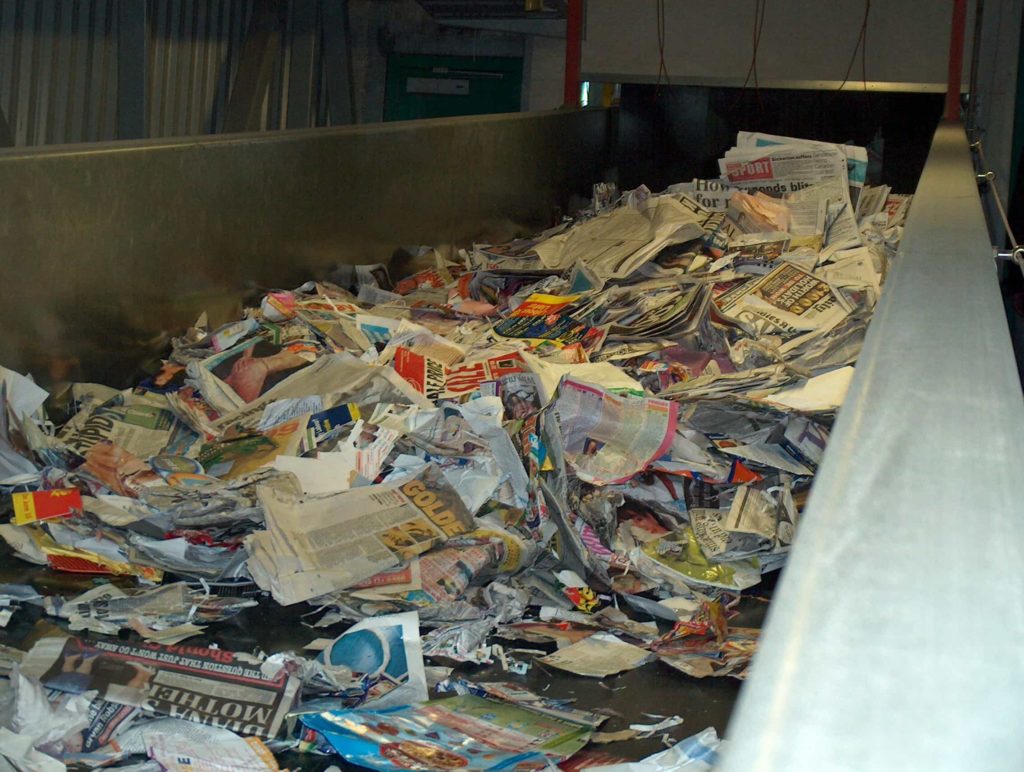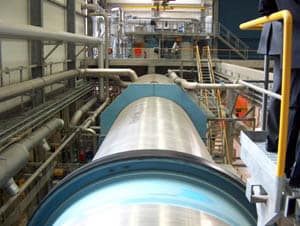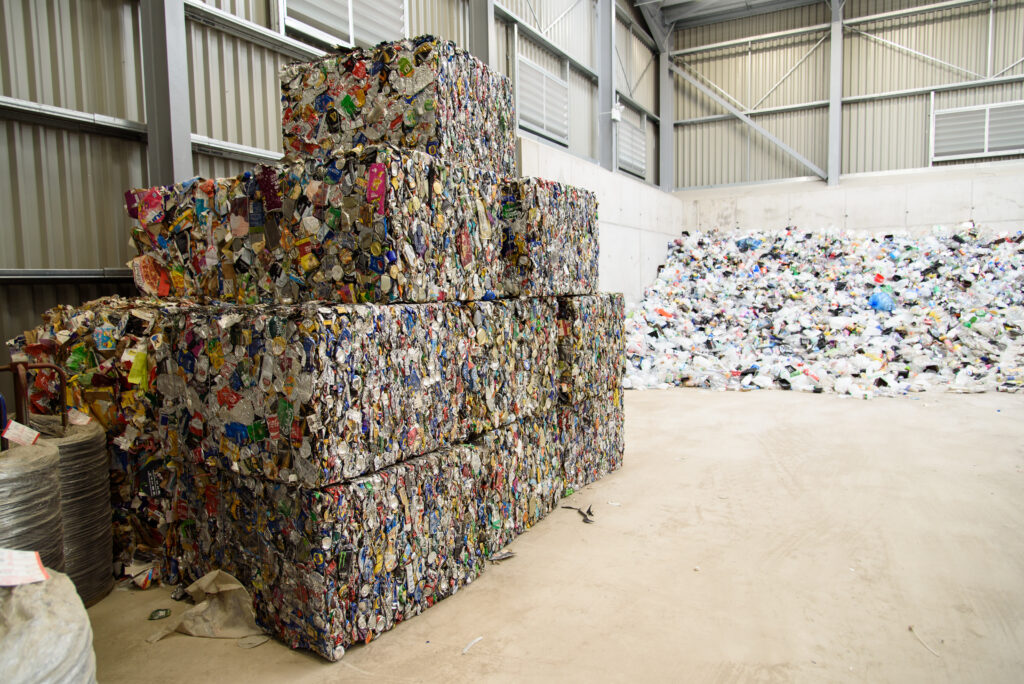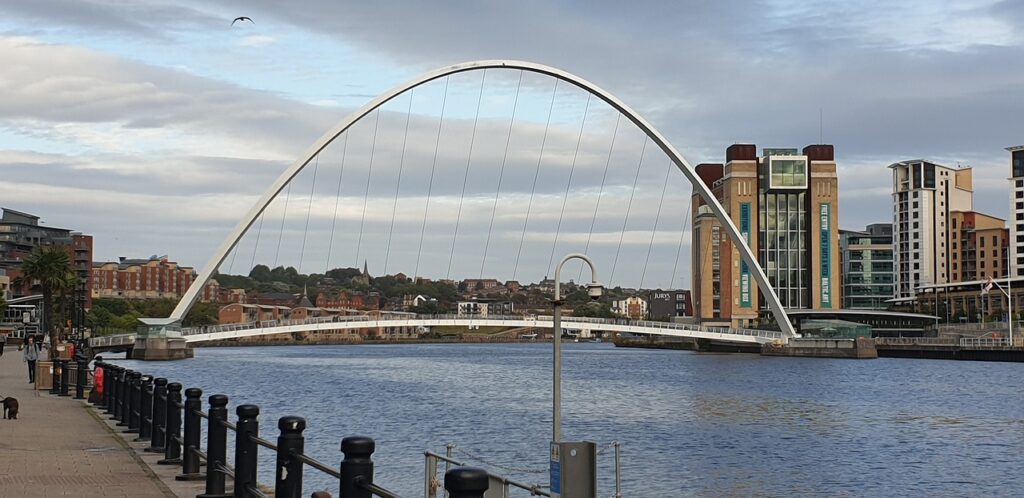
Earlier this year councils received a severe jolt when prices for waste paper, in particular used newspapers and magazines, tumbled in the wake of the closure of the Aylesford Newsprint mill and one of UPM Shotton’s two machines.
However, now the used newspaper market looks to have recovered in price terms as prices for the material have increased significantly and other grades, such as mixed paper, have also risen. Overall the figures are being seen as something of a return to a more normal rather than a subdued market.
One UK paper expert working with local authorities told letsrecycle.com: “I think local authorities can relax now. I certainly have a spring in my step which I didn’t have a few months ago. There is a demand for material again.”
Plastics
On the plastics front, councils and their contractors were also suffering with the reduced oil price and two major UK buyers of material – Closed Loop and Eco Plastics – both suffered financial difficulties. The latter pair now have new owners with reduced levels of debt. And, the plastics market is also seeing stability with some small price increases.
Prices for pre-sorted, clear PET in particular have seen a recovery since the start of the year, with ECOPlastics Recycling – the restructured Lincolnshire bottle recycler – realigning its buying policy to focus on high quality sorted material, but buying a reduced volume of mixed bottles. Dagenham-based bottle recycler Ecotech is also helping to create strong demand for clear PET. The new Closed Loop “Euro Closed Loop” are also in the marketplace and HDPE bottle prices remain firm.
However, plastics recyclers remain cautious with favourable exchange rates making imports of flake from the Eurozone relatively cheap for reprocessors.
On the glass front, while PRN values remain relatively low, there has also been a marginal improvement in figures. The one sector where there is still some concern is used aluminium cans, largely because the Novelis mill in Warrington has seen production closures and is not buying on a regular basis.
However, Novelis noted that the plant remains at capacity and that the short-term “adjustment to the UBC intake into the plant” was due to a planned engineering maintenance shutdown.
Risk sharing
The increase in prices comes as the UK’s waste management sector looks to share risk in local authority contracts on the recycling side with local authorities.
One of the UK’s top recycling experts, Herman van der Meij of Viridor, assured local authorities that they should share the upside of any new type of deals. “If they are willing to share the risk they will also share the uplift and share the improvement. Calculating costs and profits should be part of this.”
[testimonial id = “248” align=”right”]
Marcus Gover, director at WRAP, said: “Recycled materials are commodities, they are raw materials for manufacturing and they are valuable, but commodity prices do go up and down. This means that local authorities need to have the right sales strategy to ensure that turns into an income stream.
“What I recommend is that councils use our guide ‘Turning Recyclate Into Revenue’, that takes them through thinking about the risks they face from the volatility of commodity prices and developing the right strategies for dealing with that.” [For a pdf of the WRAP Revenue guide, click here.]
“Mini-boom”
There are a number of reasons behind what one recycler described as a “mini-boom” in the recovered paper sector. The used newspaper market is now competing against extra demand for mixed papers which include used newspapers. This is because some businesses had decided not to bother to sort out newspapers from mixed material because of the low value of newspapers.
Consequently, with firm demand for deinking material – used newspapers and magazines – from Palm Paper in King’s Lynn and from customers in Belgium, Spain and Germany the price has risen. This has also been influenced by strikes in the US which seen logjams of containerships. Plus, the paper which would have been produced by Aylesford Newsprint and the UPM machines which have been closed (in the UK and the Continent) mean that an estimated 20,000 tonnes a week less material is being produced.

China is also buying strongly and this is expected to continue into July.
Now attention is focusing on the July market which is traditionally one with good export demand. A good indication of whether the markets will stay firmer later in the year, could come in late August, a point in the year which is seen as an indicator of future trends.
Wrong signals
The fact that newspaper buyers such as UPM and Palm reduced the amount paid for used material so sharply just days after the Aylesford closure has also attracted comment. One recycler said: “I think the price went down too sharply and sent the wrong signals to the market and contributed to the decision by some companies not to sort. I know of sorting lines where people were laid off because it was not worth sorting mixed as the price for used newspapers was only 50p above the mixed paper price.”
Mixed paper is also in demand from DS Smith at its Kemsley mill in Kent. The company can now make cardboard using more mixed papers. Traditionally it is thought to have made cardboard using a mixture of 80% used cardboard and about 20% mixed papers but now the potential mix is said to be one that can use a greater amount of mixed papers, which costs the company less.
Quality
Another paper recycler said that he believed there were signs that MRFs were managing to improve the quality of the material “although they still get hit with some poor quality loads from councils”. However, paper mills still remain concerned about the quality issue with one buyer saying that they always had to remain vigilant because while there were improvements, reliability problems remained from local authority sources.








Subscribe for free